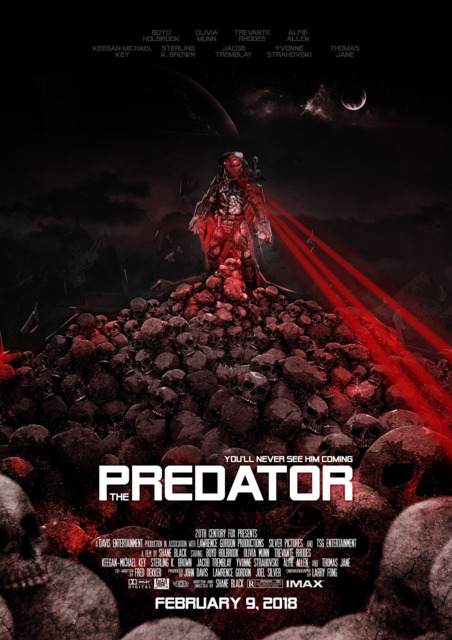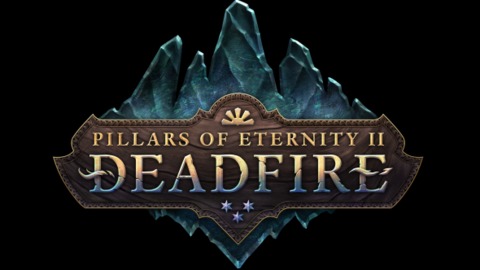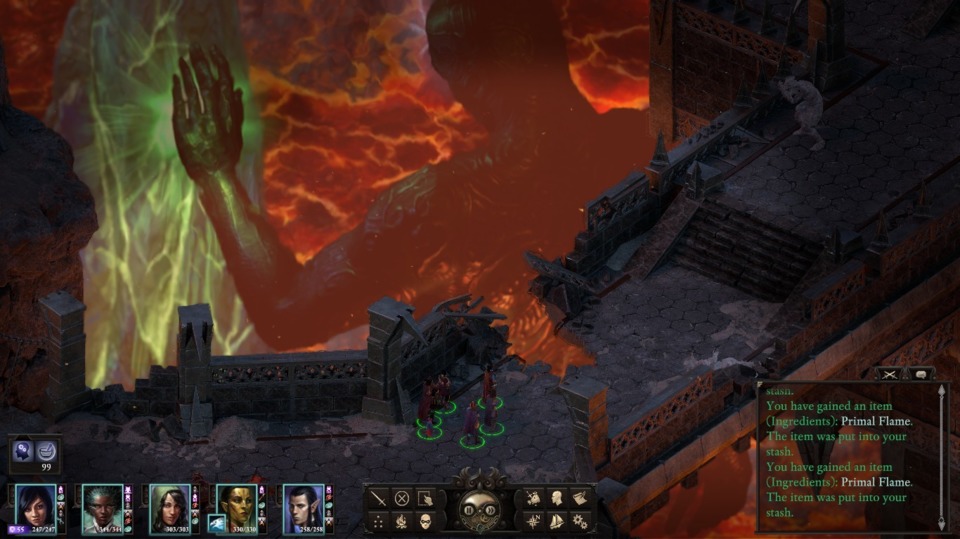I've been pondering the preponderance of save states in our retro gaming venues of late, in part because of the ongoing SNES feature I've been writing, but also as a built-in feature of various retro-themed rereleases and devices, such as the Mega Man Legacy Collections (as conservatively demonstrated by Alex Navarro in GBEast's ongoing Blue Bombin' series) and miniature consoles like the original SNES Classic and, I'm guessing, the upcoming PlayStation Classic. (Oh, before I forget, since everyone's putting their list of twenty PS1 games together: Final Fantasy IX, Final Fantasy Tactics, Vagrant Story, Vandal Hearts II, Xenogears, Mega Man Legends, Alundra, Breath of Fire III, Grandia, Star Ocean 2, Street Fighter EX Plus Alpha, Suikoden, Suikoden 2, Wild ARMs, Tales of Destiny, The Legend of Dragoon, Brave Fencer Musashi, Valkyrie Profile, Lunar: Silver Star Story Complete, and Castlevania: Symphony of the Night. Naturally, if we're just talking significant PlayStation games, you'd probably want a Resident Evil, a Tony Hawk's Pro Skater, a Tomb Raider, and a WipEout on there instead.)
What save states effectively do is retroactively update older games for modern design sensibilities. While some older games do let you save anywhere, most limit you to specific save points or even a finite supply of items that can be used to save the game (like the ink ribbons of Resident Evil or the save crystals of Tomb Raider, at least the PS1 version). Limiting how often the player could save is an outmoded notion of enforcing game difficulty; it's ultimately self-defeating, because having the audience play through the same sections of the game over and over to reach the next checkpoint is the fastest way of burning them out and motivating them to move on. There is a means to maintain a moderate degree of game challenge while also minimizing the inconvenience fail states can cause to players, and presently games are still trying to figure out how best to strike that balance (or else promote themselves as being outside this paradigm and more like the games of old, aiming for an audience nostalgic for being dicked around on the regular by their games). A good example would be a tough boss fight that lets you start over from checkpoints, or at the very least the start of the fight: it's not going to go easy on you, but it will let you try as often as you like without the preamble.
However, since there's no limits to where and when you can save with the save states feature, it's a tool that can be potentially used for ill and - even worse - something that could potentially wreck a playthrough permanently. Using save states in the middle of a sequence or fight that - at that moment - has no chance of success, for instance. You could also use it to effectively cheat at games of chance, maintain long combos in Tony Hawk's Pro Skater, or retake penalties in FIFA as many times as needed. You aren't exactly playing these old games as they're meant to be played with such a powerful ace up your sleeve, but per contra there's an argument to be made for breaking these old games wide open. Chances are, anyone revisiting these games are doing so in a historical context, because they're interested in what games used to look and play like - especially early entries in long-running series that might still be ongoing today - without necessarily playing by a set of antiquated rules that might seem stifling or mindlessly repetitive by today's standards. The idea of "content tourism", where players look towards easy modes and conflict-free modes of new games to soak in the atmosphere and story without being tested too harshly (or at all), makes save states a conducive way of exploring old games without having to fundamentally change their content.
I guess what I'm saying is that save states not only make some older games more bearable, but also more accessible to a (let's face it, mollycoddled) modern audience of gamers who are looking to grab these retro consoles to either revisit their youth or slake their curiosity of a bygone age. That many of these retro compilations - the Mega Man Legacy Collections in particular - sell themselves as museums for their subject matter legitimizes this notion of what audiences want, I feel. It's also the secret appeal of the NES Remix games. They're best known for the silly mash-ups, and I might agree with Jeff in that they don't get weird enough with those, but they also work as expedited Cliff's Notes for what it was like to play and master those games originally: the exploitation of bugs, high-scoring techniques you'd learn about in Nintendo Power or from savvier friends, the best way to effectively fight the various opponents in Punch Out!! - the Retro Game Challenge series for DS, developed by the same group as NES Remix (indies zero), leaned heavily on the nigh-universal milieu of sitting in your living room as a kid reading game magazines for advice and trying to beat your friend's scores. I think back to educational TV shows and cartoons where a bunch of kids pile into a time machine and get a guided tour of the usually violent and brutal eras of past civilizations, watching it all play out from a position of relative safety; that's pretty much what it's like to revisit older games with save states.
Of course, if you're trying to review these old games in a modern context it behooves you to use save states as infrequently as possible. I can't say that I completely avoid them - the final Wily battle of Mega Man 7 would be a pain in the neck if you had to redo the prerequisite boss rush and gather the consumables you needed after each failure - but they can be a powerful crutch if I allow them to be.
Speaking of which, we have a couple of new blogs for your approval this week:
- The Indie Game of the Week this time was Yoku's Island Express, released as recently as last May. Yoku's balances traditional spacewhipper elements with pinball mechanics for a relatively novel take on the Indie development scene's favorite sub-genre. It's an incredibly chill game by design, not exactly casual but certainly not interested in death states or anything of the sort. Just send that little dung beetle flying around pinball tables and hunt for collectibles at your own pace; the sort of brief, easygoing Indie game experience that's just what's needed as a break from the tactically taxing likes of Pillars of Eternity II.
- This week also included another duo of SNES games judged for their originality and longevity. The SNES Classic Mk. II: Episode XIX: Fiddle-Fodder looks at two obscurities from either side of the globe: the manga licensed platformer Hameln no Violin Hiki from Japan's Daft Co., which has a shapeshifting kirugumi gimmick that's as clever as it is adorable; and the United Kingdom-based Sensible Software's Cannon Fodder - a mouse-driven, real-time, (inadvertently) anti-war action-strategy game that's considerably more challenging (and emotionally affecting) than its simple point-and-shoot mechanics would suggest.
Addenda
TV: BoJack Horseman (Season 5)

I always have to gird myself for each new season of BoJack Horseman, because it never pulls its gut punches. If it wasn't such an entertaining and well-written comedy show, I might have bailed on it long ago; despite what people tell you, misery does not enjoy company. Nothing procs my own anxieties, self-loathing and depression more than seeing variants of them depicted on-screen so realistically, even if there's a significant amount of distance between myself and an animated talking horse voiced by Will Arnett, and it's why I immediately tend to bounce from social anxiety "cringe comedies" like Curb Your Enthusiasm or The Office. Fremdschamen is, after all, a powerfully negative force to contend with if your sense of empathy is potent enough.
Yet despite this built-in resistance, I can't quit this show. It's not just that it's really funny, with excellent sitcom writing, freeze-frame sign gags, a wonderful cast of regular and guest voices, and pitch-perfect satirical breakdowns of the various travails facing showbusiness and adults in general - this series has a lot to say about famous people trying to get away with scummy practices during the #MeToo and #TimesUp movement, the concessions and compromises to your vision you must make to bring it to reality, painkiller addiction, alcoholism, the identity issues of American-born minorities who find they don't fit in with either the predominantly white culture of their birth nor the culture of their ancestors, the difficulties of going home again when you've matured so much living elsewhere, and dealing with the death of an estranged relative you always wished you could repair your relationship with. It's not that the show is routinely pulling out incredible gimmick episodes that not only push the envelope for animation but for TV shows in general, including a whole episode given over to a eulogy where only one character speaks and the camera rarely ever moves, and another given to a secondary's character journey to rediscover herself after a painful divorce in the framing device of a throwaway internet listicle and yet another that constantly bounces between four Halloween parties from 1993, 2004, 2009, and 2018. It's not just that I've come to love these characters and want them to succeed, despite the fact that their lives never seem to improve and - for some - probably deserve their unhappiness.
It's more that this show's become something very important and personal to me, between the way it realistically handles the same psychological problems I struggle with to all the goofy puns and wordplay that even I'm left alternatively in awe of or shaking my head mournfully at (just in case anyone in the Giant Bomb chat wonders if I know what it feels like to be on the receiving end of that business). I binge every season that appears, I'm left emotionally distraught for days afterwards, and I still repeat the cycle each time. Wouldn't have it any other way.
Movie: The Predator (2018)

Oh boy. It's safe to say I expected more from a Shane Black script, if not from a Predator movie - all of which have been sitting in this "it's OK" tier since the second one with Danny Glover. It does feel like it was edited by a weedwhacker, as RedLetterMedia put it, with various important exposition scenes either hurriedly replaced or left out entirely. The movie puts a military sniper, Quinn McKenna, in a Predator's crosshairs early on; he survives the encounter and ships off valuable alien technology he found to his autistic son - what we'd previously call an "idiot savant" - to figure out, and also prove he wasn't crazy by ensuring some proof of the encounter wasn't swept away by government high-ups. He's nonetheless found crazy - though it's clearly part of the cover-up - and sent to an institution with a busload of vets with various PTSD-related ailments. It's at this point that a captive Predator breaks loose from the secure military facility it was in, kills most of the scientists and guards, and runs into McKenna's group during its escape. What then ensues is an hour and a half of moderately confusing plotting and action scenes, some mean-spirited humor in a script not exactly sparkling with Black's usual ear for dialogue, some silly machismo which at least feels true to the original movie, and a whole lot of gory - but not too gory, since this was a "15"-rated film here - deaths-by-alien.
Honestly, there were parts of the movie I enjoyed, for as dumb as it was on the whole. I feel like if more of the original script had survived intact there'd be some cool new developments in understanding the Yautja and their relationship to Earth and humans beyond a good place for trophy hunting, a better explanation of why some Yautja want to save the planet from its imminent ecological collapse and others want to leave us to our fates to make our planet more habitable for their particular environmental needs, and perhaps a different conclusion than the one we saw that was way more by-the-numbers and felt tacked on by the studio. The RedLetterMedia guys cover a lot of this too, and it didn't really strike me that this movie could've been a whole lot better if it wasn't for "A, B and C" until they - as filmmakers themselves - laid it all out. It's a bummer when you have a bad movie, but more so when it was this close to being a good movie that was interfered with or plagued with unfortunate issues (such as the whole sorry episode with a different kind of predator that co-star Olivia Munn had to deal with). For as much as he deserves to be bashed for some of the decisions he made, as well as dragging poor old Monster Squad co-writer Fred Dekker into this from whatever he was doing, I hope Shane Black isn't too discouraged by what happened to his Predator movie and recharges his batteries with something smaller and less studio-interference-prone like The Nice Guys or Kiss Kiss Bang Bang, which are still two of the best action comedies from this century.
It wasn't a catastrophe, all told, but certainly not something I'd recommend people go see in theaters. It is, like so many other Predator movies, merely OK at best and a poorly edited, spiteful, confused mess that at one point featured a registered sex offender at worst.
Game: Pillars of Eternity II: Deadfire

I swear I'm completing this game this weekend. Every week I get pulled in a bunch of directions for the other games I'm blogging about, and am unable to carve out the longer playing sessions an RPG of this calibre deserves. It doesn't help either that the game is poorly optimized for my weaker system and suffers from outstanding bugs and glitches that often serve to slow down whatever it is I'm doing. Most of the blame, however, goes towards my habit of obsessively exploring every node on the map and running back and forth completing side-quests and bounties, not all of which are strictly necessary (and have almost certainly knocked the difficulty balance of the game's major quests off-kilter). I've probably spent a few hours total alone just figuring out how to stealthily steal from every shopkeeper without getting spotted by them or their guards in the process.
Nonetheless, I have really enjoyed Deadfire for the most part. In addition to some excellent and thorough worldbuilding and storytelling, cleverly streamlined battles and RPG mechanics, and some impressive visuals and a figurative and literal enormous ocean of possibilities to explore, the game is constantly surprising me with all these smaller common-sense tweaks and innovations to every facet of its being. Little touches like the way you only earn XP from defeating monsters if you're learning something - it takes a few fights to fill out a creature's bestiary page, and after that you stop earning anything from defeating them. XP is still plentiful because you get a lot from completing quests, but also small amounts from fighting new enemies, dismantling traps, and unlocking chests, but you'll often get the same rewards talking an enemy down from a hostile state than fighting them. I've already talked about the elaborate AI system ad nauseum, but it strikes an excellent balance between minimizing the amount of confused catawampus that the mostly real-time and fast-paced group combat devolves into and avoiding that Final Fantasy XII feeling that the game is playing itself - as long as you're regularly facing encounters around your level, your intervening is frequently required to keep people alive by telling them to heal or moving them out of harm's way, or directing your team towards the targets that matter most rather than the AI default of whichever targets are closest at hand (that's particularly true of my arquebus sniper, Maia, who is amazing at taking out enemy magic-users hovering around at the back of the melee).

In truth, I get the same buzz playing Deadfire and discovering yet another way it's ingeniously tackled a long-standing problem with CRPGs that I did when playing Xenoblade Chronicles 1 and seeing how it regularly subverted previously-entrenched JRPG tropes in a similar fashion. Both feel like major steps forward for their respective sub-genres, as well as incredibly huge and ambitious games of the like that you don't often see in the RPG market now that they've become less marketable to the mainstream. Unlike Mass Effect, which I love dearly so don't get the wrong impression, there's nothing about Deadfire's streamlining process that feels counter to its dedication to old-school CRPGs, nor has it minimized the degree of complexity that the sheer number of options - the ample number of spells, consumables, weapon types, or unique class abilities - provide, for better or worse. There's a hundred ways you could play Deadfire - even the pre-generated characters with their own dialogue, prejudices, and personal story quest chains have no fixed class, but three possible classes or class hybrids based on their stats - and the immense scope of that is impressive in this era. It's going to require one hell of a coup to knock it off my #1 position on this year's GOTY list, but I suppose there's still a lot from this year I've yet to check out.
Log in to comment